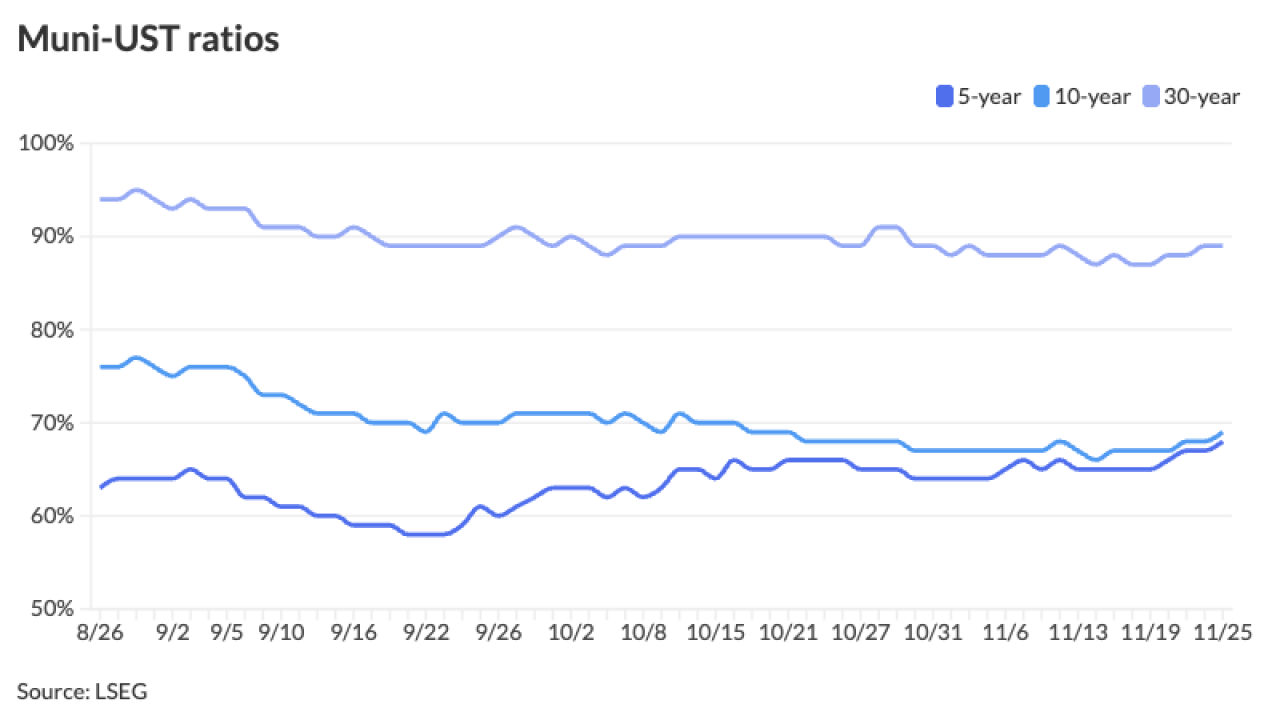As states scramble to fill widening revenue gaps during the COVID-19 pandemic, Rhode Island is dusting off a 47-year-old playbook.
On Thursday, the Disaster Emergency Funding Board, an obscure body the legislature authorized
The board will consist of Senate President Dominick Ruggerio; House Speaker Nicholas Mattiello; Senate Finance Committee Chairman William Conley; and House Finance Committee Chairman Marvin Abney. All four are Democrats.

In a
While closed to public attendance because of the virus, it will be available through a Capitol TV live stream.
As of March 20, 12 states have enacted supplemental appropriations or transferred general revenue funds to help public health agencies combat the coronavirus, according to
Raimondo declared an emergency on March 9. The state has 124 confirmed cases of the virus including 18 new ones, she said Tuesday.
"The demands placed on funds regularly appropriated to state and local agencies in coping with the disaster emergency are too great," she said in the letter.
The board could enable the governor to make funds available by transferring and expending moneys appropriated for other purposes or borrow for a two-year maximum term.
“The governor can request a transfer or borrow,” said Gary Sasse, founding director at Bryant University’s
Raimondo and her staff will speak to the board. “The state is not going to run out of money," she said earlier this week.
State Republicans are questioning whether the process is legal.
“The Disaster Emergency Funding Board cannot ignore the state constitution’s restrictions on debt," said state GOP Chairwoman Sue Cienki. She cited provisions requiring voter approval except in wartime. Cienki suggested state officials tap the rainy day fund, which has about a $200 million balance.
"Under our form of government, it is the voters, not a handful of State House politicians who decide Rhode Island needs hundreds of millions in debt," Cienki said "There are constitutional ways to get through this crisis.”
Raimondo and state General Treasurer Seth Magaziner — Raimondo's successor at that position — are exploring a variety of options.
With businesses shuttered in an effort to flatten the spread of COVID-19, unemployment claims have soared.
Even before the pandemic hit, Rhode Island was grappling with budget strife. Raimondo, in her $10.2 billion fiscal 2021
Raimondo and top lawmakers have sparred over other potential revenue sources, including recreational marijuana and the timing of a car-tax phaseout. Now, because of the coronavirus, tax filings have been delayed until July 15 — after the state budget deadline — thus stunting another source.
Rhode Island’s problem amid the pandemic is three-pronged, according to Sasse.
“Think of it in three brackets,” Sasse said. “There’s a need for more spending due to the nature of the problem. Then there’s delayed revenue and reduced revenue.”
Tax anticipation notes, according to Sasse, pose a riskier option than normal because the revenue may not be available for short-term repayment. He cited the state constitution, which requires repayment of revenue-anticipation borrowing within the same fiscal year.
Moody's Investors Service rates Rhode Island's general obligation bonds Aa2. Fitch Ratings and S&P Global Ratings rate them AA, All three assign stable outlooks.
The state is at a standstill with many businesses closed, including its two Twin River casinos, which combine for roughly $25 million for the state. Gambling, including lottery receipts, accounts for Rhode Island’s third highest source of revenue.
"Clearly our revenues have fallen off a cliff," Raimondo said.
Raimondo, a Democrat in her second and final term, signed an executive order requiring all air travelers returning to the state self-quarantine for 14 days. Government personnel including the National Guard, she said, will be at T.F. Green Airport in Warwick to help coordinate.
"We don't want to be Seattle, New Orleans or Italy," she said, citing virus hot spots.
In another order, she moved Rhode Island's presidential primary to June 2 from April 28, as the state Board of Elections requested.





